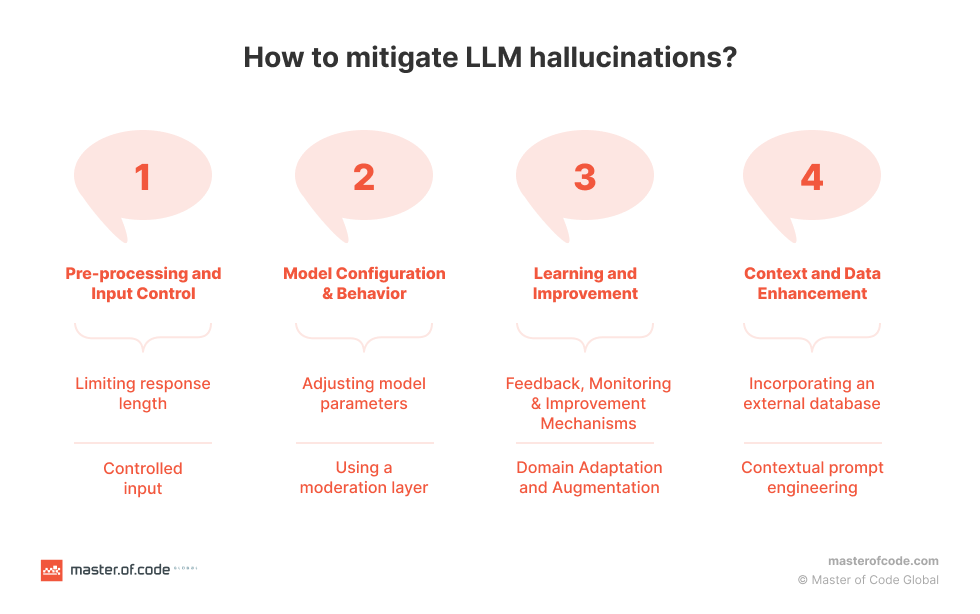The future of AI isn’t locked behind proprietary paywalls—it’s open and collaborative, with open source LLMs giving businesses the power to innovate on their own terms.
Introduction to Open Source LLMs and AI
Artificial intelligence is no longer limited to tech giants with significant financial resources. Generative AI has paved the way for the development and utilization of large language models (LLMs) across various industries. The rise of open source LLMs has democratized access to advanced AI capabilities, allowing businesses of all sizes to benefit without the constraints of proprietary solutions.
Popular open source LLMs like Falcon, Llama 3, BLOOM, and BERT are revolutionizing industries by streamlining processes, enhancing customer interactions, and facilitating better decision-making. While the adoption of these models brings numerous advantages, concerns such as security and AI hallucinations persist. 
Benefits and Applications of Open Source LLMs
Open source LLMs offer unparalleled versatility, empowering organizations across diverse sectors to address unique challenges. From finance to education, these models are driving innovation by delivering tailored and scalable solutions that outperform traditional proprietary systems. 
One of the key advantages of open source LLMs is the transparency they provide. Unlike closed-source alternatives, developers can scrutinize the code and training data, enabling quicker identification and resolution of security vulnerabilities. By hosting these models on internal infrastructure, companies can safeguard sensitive information and customize security measures to meet specific requirements.
Moreover, the collaborative nature of open source development ensures that a global network of developers is continuously enhancing the security of these models, offering unparalleled support and updates.
Exploring Open Source LLMs
Proprietary AI solutions have historically required substantial computational resources, restricting access to well-funded organizations. However, open source LLMs are dismantling these barriers, allowing anyone to experiment with AI models tailored to their unique needs. 
For instance:
- Falcon: Known for its exceptional performance efficiency, Falcon is a cost-effective choice for enterprises seeking advanced AI capabilities.
- Llama 3 (Large Language Model Meta AI 3): Meta's latest offering strikes a balance between power and accessibility, enabling developers to integrate advanced natural language processing (NLP) into their applications.
- BLOOM (BigScience Large Open-science Open-access Multilingual Language Model): Developed by Hugging Face, BLOOM boasts 176 billion parameters for constructing transformer-based autoregressive LLMs to cater to a wide range of global applications.
- BERT (Bidirectional Encoder Representations from Transformers): Google's BERT remains a popular choice for NLP tasks such as search and chatbots due to its bidirectional nature and effectiveness.
Addressing AI Hallucination in Open Source LLMs
AI hallucination, where models generate inaccurate or fabricated content, poses challenges in both open source and proprietary LLMs. Open source projects implement various strategies to mitigate hallucination:
- Curating Training Data: Data sets are curated to exclude noisy or biased information, enhancing the model's accuracy.
- Human Annotation and Reward Modelling: Annotators rank outputs based on accuracy, and reward models are trained to evaluate this ranking, improving factual correctness.
- Domain-Specific Fine-Tuning: Models like Llama and Vicuna are fine-tuned using specialized datasets to reduce hallucination in niche topics.
Privacy concerns arise from the training and deployment of LLMs, especially in open source environments where data access is more accessible. Issues such as improper anonymization of training data and potential misuse of user information underscore the importance of implementing robust privacy measures and complying with regulations like GDPR and CCPA.
Ethical dilemmas encompass issues of bias, accountability, and environmental impact. The widespread adoption of open source LLMs necessitates responsible usage to mitigate risks of unintended consequences.
Future Trends in Open Source LLMs
The landscape of AI is evolving rapidly, with open source LLMs leading the transformation. As these models become more sophisticated and user-friendly, trends are emerging to make AI technology accessible, ethical, and aligned with global values.
By fostering continuous improvement through community feedback and addressing challenges like AI hallucination and privacy concerns, open source LLMs are poised to shape the future of AI in a diverse and dynamic manner.










